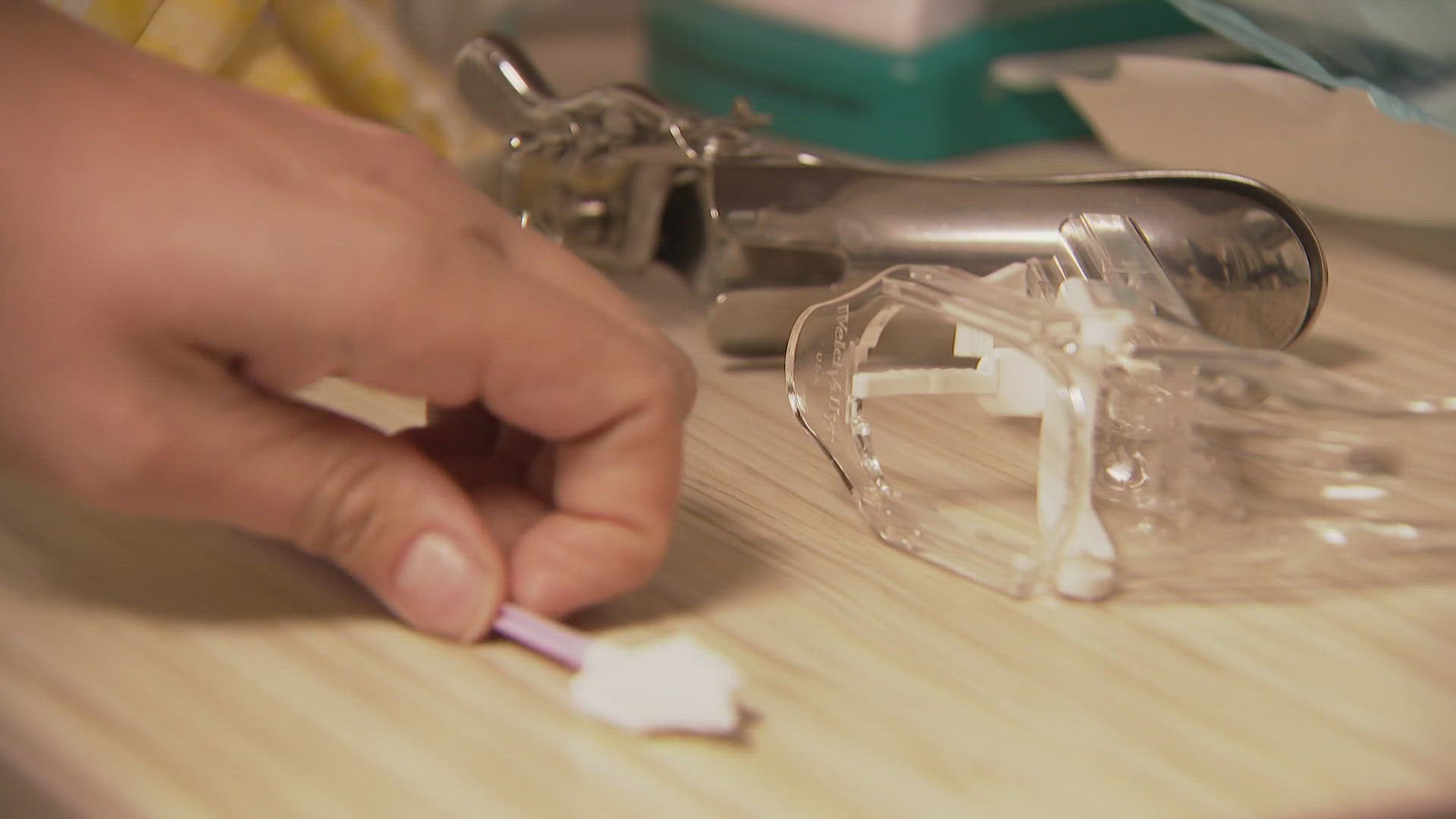DENVER — When that annual appointment at the gynecologist's office comes up, many women don't want to go.
Getting a pap smear can be awkward, uncomfortable or even painful. But a new test approved by the Food and Drug Administration (FDA) could change that.
In May, the FDA approved a self-swab alternative to the pap smear. Doctors say it's just as effective at spotting cervical pre-cancer and cancer.
The new tests are on their way to many doctor's offices now. Dr. Olga Muldoon. an OB-GYN with AdventHealth Porter, said this new test could make a big difference when it comes to care.
"It is really different, to be totally frank. It's a huge shift in terms of medical care," said Muldoon, who specializes in minimally invasive and complex gynecologic surgeries.
Muldoon said this is huge for women living in rural areas, members of the LGBTQ+ community and for survivors of sexual assault.
"Huge game changer. For those patients, this is really something that can make them be able to get care that they otherwise wouldn't be willing or able to do," Muldoon said. "So really, that's what this is made for. This is made for allowing for women who have had a previous history of assault or trauma who simply cannot tolerate exams to be able to still get the screening that they deserve."
Ana Martinez, co-director of client services with the Blue Bench, said going in for a pap smear or annual exam can be triggering for survivors. Many will delay or avoid care altogether.
"Unfortunately, we do have a lot of survivors who maybe got a SANE exam and it was a very intrusive, difficult situation to go through," Martinez said. "Just being in a medical setting in a very similar position can be a lot. So yeah, it is certainly something that we see people delay or come to therapy for to ask how to prepare for."
This new cervical cancer screening will give women an option of doing the self-swab at-home or at the doctor's office.
"Having the control of being able to do it yourself with guidance or with clear instructions feels a lot more empowering then someone else, even if it's a well-intentioned healthcare professional touching you in an area that might unfortunately have associations with previous trauma," Martinez said.
Muldoon said this self-swab option is reliable and it's not as invasive as the traditional pap smear. It's been used abroad for years before the FDA approved it in the United States.
While it cannot and should not replace your annual exam, Muldoon said this new test could make a difference in spotting cancer early and bringing cervical cancer rates down.
“Cervical cancer is something that, in other countries, has become much better managed than it has in the United States. For us, that’s something we’ve long wished to be able to fix. And in large part, we wonder how much of that is because of patients’ lack of access to care or lack of willingness to seek out that care," Muldoon said. "If this even makes a dent in our ability to be able to catch cervical cancer before it becomes something that is not curable, then it's entirely worth it."

